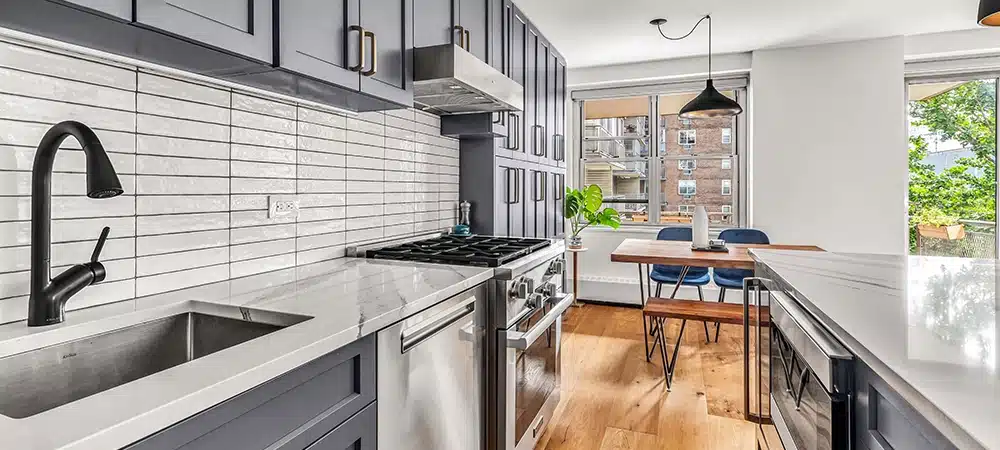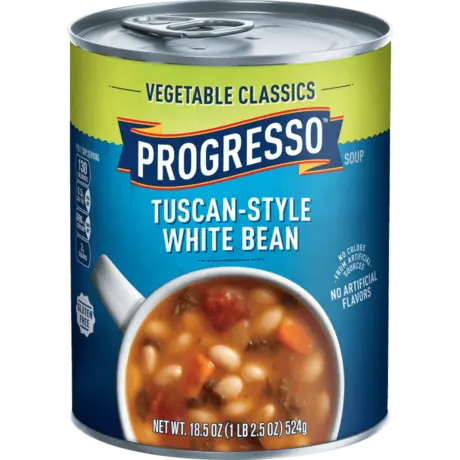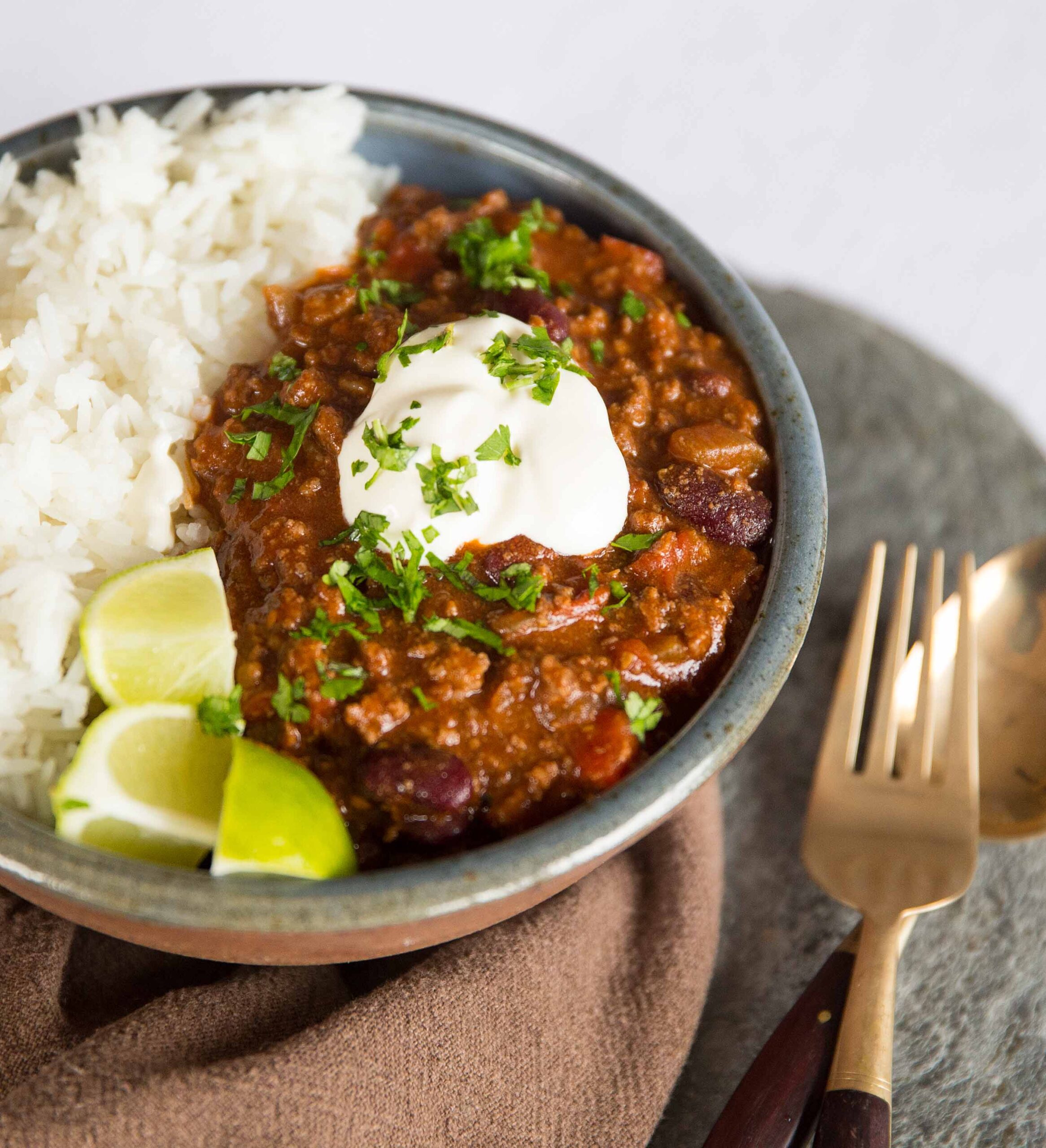As an Amazon Associate, I earn from qualifying purchases
Saving money in the kitchen is achievable by planning meals and buying in bulk. Quality doesn’t have to be compromised with smart shopping strategies.
The kitchen is often considered the heart of the home, where meals are lovingly prepared, and memories are made. Yet, for many, it can also be a place where money seems to disappear quickly, especially when striving for quality ingredients and dishes.
But cutting costs without cutting corners on quality is entirely possible with a bit of know-how and preparation. By focusing on meal planning and smart shopping, households can reduce waste, make the most of their ingredients, and enjoy delicious, high-quality meals without breaking the bank. This approach not only helps in saving money but also encourages a healthier, more sustainable lifestyle, making every dollar count in the kitchen.

Credit: confessionsofacleaninglady.com
Introduction To Kitchen Economics
Kitchen economics is a smart way to manage your home budget. It means spending less in the kitchen without giving up on good food. You buy what you need, use it well, and waste less. This guide will show you how to find the right balance between quality and cost.
The Balance Between Quality And Cost
Finding the best value for kitchen spending is key. It’s not about the cheapest options. It’s about the best quality for what you can pay. Think long-term savings, not just low prices. Invest in good tools and ingredients that last longer and perform better.
Why This Matters
Saving money in the kitchen helps your whole budget. It means more cash for other important things. Good kitchen economics can lead to healthier eating too. You choose better ingredients and make meals from scratch. This way, you control what goes into your food.
- Plan meals ahead to avoid waste.
- Buy in bulk when it makes sense.
- Use seasonal produce for freshness and savings.
- Keep an eye on sales and stock up wisely.
Remember, saving money in the kitchen is a mix of smart choices. It’s about being a wise shopper and a savvy cook. Follow these tips, and you’ll see your kitchen costs drop without losing out on tasty, quality meals.

Credit: www.myhomeus.com
Budget-friendly Shopping Strategies
Discovering ways to save money in the kitchen is a win-win. It’s possible to enjoy delicious meals without breaking the bank. Let’s explore smart shopping strategies that keep both quality and savings in mind.
Smart Grocery Shopping Tips
Plan meals before heading to the store. A list prevents impulse buys. Check flyers for sales. Use coupons and cashback apps to save more. Stick to the list and avoid shopping hungry. These habits make a big difference.
Bulk Buying: Pros And Cons
Buying in bulk can save money but needs smart choices. Consider shelf life and storage before purchasing.
| Pros | Cons |
|---|---|
| Lower prices per unit | Upfront cost is higher |
| Fewer shopping trips | Needs more storage space |
| Reduces packaging waste | Possible waste if unused |
- Buy non-perishables like rice, pasta, and canned goods in bulk.
- Consider a membership at a warehouse club for more savings.
- Share bulk items with friends or family if too much for one household.
Investing In Long-lasting Kitchen Tools
Investing in long-lasting kitchen tools is a smart move for any home chef. Durable utensils and appliances mean fewer replacements. This can save money over time. Quality items often enhance cooking experiences too. They can improve the flavor and presentation of dishes. Let’s explore the essentials for a well-equipped kitchen.
Essential Tools For Every Kitchen
Some tools are non-negotiable for a functional kitchen. These include:
- Knives: A chef’s knife, a paring knife, and a serrated knife cover most cutting tasks.
- Cookware: A set of pots and pans with varying sizes is crucial.
- Utensils: Spatulas, ladles, and tongs must be heat-resistant and sturdy.
- Prep tools: Cutting boards, mixing bowls, and measuring cups aid in precise cooking.
- Appliances: Reliable items like blenders, mixers, and food processors speed up prep time.
When To Splurge Vs. Save
Not all kitchen tools require a hefty investment. Know when to spend more:
| Tool | Splurge | Save |
|---|---|---|
| Knives | Yes, they last longer and perform better. | No |
| Cookware | Yes, for even heat distribution and durability. | No |
| Utensils | Sometimes, for items used daily. | Yes, for less used items. |
| Appliances | Yes, for frequently used items. | Yes, for rarely used items. |
Choose wisely. Quality tools do not always need to be expensive. Look for sales and discounts. Read reviews before purchasing. This ensures you get the best value for your money.
Maximizing Food Freshness And Minimizing Waste
Saving money in the kitchen is smart and simple. It starts with keeping food fresh. Less waste means more savings. Let’s explore tips for extending food life and using leftovers creatively.
Proper Food Storage Techniques
Storing food correctly keeps it fresh longer. Use these methods:
- Seal tightly: Use airtight containers for leftovers.
- Keep cool: Refrigerate perishables promptly.
- Separate: Store fruits and veggies separately.
- Control humidity: Use fridge drawers’ humidity settings.
Remember to check expiry dates. Rotate older items to the front.
Creative Ways To Repurpose Leftovers
Leftovers are a chance to be creative. Try these ideas:
- Reinvent dishes: Turn last night’s chicken into tacos.
- Mix and match: Add leftovers to salads or soups.
- Freeze: Save meals for later in the freezer.
- Blend: Make smoothies from overripe fruits.
Label your leftovers. Note what’s inside and the date.
Energy-efficient Cooking Habits
Mastering energy-efficient cooking habits can lead to big savings. You don’t need to choose between quality and cost. Let’s explore how to cut energy bills and still cook delicious meals.
Choosing The Right Appliances
Selecting energy-saving appliances is the first step. Look for the Energy Star label when you buy a new oven or range. These appliances use less power and save money over time.
Cooking Methods That Save Energy
- Use lids on pots to keep heat in.
- Cook with smaller appliances like multicookers when possible.
- Batch cook meals to use the oven less often.
- Choose to stir-fry or steam instead of bake.

Credit: m.facebook.com
Diy Ingredients And Condiments
Creating DIY ingredients and condiments brings savings to your kitchen. It also ensures you enjoy high-quality, fresh flavors. Let’s explore how to make staple kitchen items from scratch.
Easy Recipes To Get Started
Embark on your DIY journey with these simple recipes:
- Mayonnaise: Blend egg yolks, oil, and lemon juice.
- Mustard: Mix mustard seeds, vinegar, and spices.
- Almond milk: Soak almonds, blend with water, and strain.
These recipes use basic ingredients and require minimal equipment.
Cost Comparison With Store-bought
Let’s compare costs of homemade versus store-bought items:
| Item | DIY Cost | Store Cost | Savings |
|---|---|---|---|
| Mayonnaise | $1.50 | $3.50 | $2.00 |
| Mustard | $0.50 | $1.50 | $1.00 |
| Almond milk | $1.75 | $3.00 | $1.25 |
The table shows clear savings with DIY options. Homemade quality tops store versions too.
The Art Of Meal Planning And Prep
Mastering the art of meal planning and prep is a game-changer in saving money in the kitchen. It’s about being smart with both your time and resources. Let’s dive into how you can ace this skill without compromising on the quality of your meals.
Weekly Meal Planning Guide
Start with a list of your favorite meals. Think about breakfast, lunch, and dinner. Make it diverse to keep things interesting.
Check your pantry and fridge. Note what you already have. This step will help you avoid buying duplicates.
Create a shopping list based on your meal plan. Stick to this list to prevent impulse buys.
Look for sales and plan meals around discounted items. This tactic will help you save money while enjoying a variety of foods.
Remember to plan for leftovers. They can be a time-saver and reduce food waste.
Efficient Meal Prep Strategies
Choose a day for meal prep. Many people prefer Sunday because it’s before the workweek starts.
Prepare ingredients in batches. Chop veggies, cook grains, and marinate proteins ahead of time.
Invest in quality containers. They keep your food fresh longer and make portion control easier.
Freeze portions for later. This approach is perfect for busy days when you don’t have time to cook.
Keep your prep area clean. A tidy kitchen makes meal prep more enjoyable and efficient.
Embracing Seasonal And Local Produce
Kitchen savings often start with smart shopping. Embracing Seasonal and Local Produce is a strategy that benefits both your budget and your health. Fresh, local foods not only taste better, but they can also be more affordable when purchased in their peak season.
Benefits For Your Wallet And Health
- Cost Savings: Seasonal produce often comes with lower price tags.
- Peak Flavor: Fruits and vegetables in season taste better.
- Higher Nutrients: Fresh, local produce is richer in vitamins.
- Supports Local Economy: Buying local keeps money in your community.
- Reduces Carbon Footprint: Less transport means a smaller carbon footprint.
Finding The Best Local Sources
Discover where to buy the freshest local produce.
- Visit Farmers’ Markets: They offer a variety of fresh, local options.
- Join a CSA: Community Supported Agriculture connects you to farms.
- Check out Roadside Stands: These can be sources of fresh, direct-from-farm produce.
- Use Apps: Technology helps locate the best local produce deals.
- Plant a Garden: Grow your own for the freshest produce possible.
Conclusion: The Joy Of Cooking Economically
Conclusion: The Joy of Cooking Economically brings many rewards. Cooking at home saves money and improves meal quality. Let’s explore how.
Personal And Environmental Benefits
- Saves money: Buying ingredients costs less than eating out.
- Healthier meals: Control what goes into your food.
- Reduces waste: Use leftovers, cutting down on food waste.
- Less packaging: Buying in bulk reduces packaging waste.
Encouragement To Start Small
Beginning your journey doesn’t require big steps. Start with simple changes.
- Plan meals: Saves time and reduces impulse buys.
- Shop sales: Buy bulk items on sale for savings.
- Use leftovers: Create new meals, maximizing resources.
- Grow herbs: Small pots of herbs cut costs on fresh spices.
Frequently Asked Questions
How To Reduce Food Costs At Home?
Eating in-season produce and buying in bulk can significantly cut food costs without affecting meal quality.
Can Meal Planning Save Money?
Absolutely, meal planning prevents impulse buys and reduces waste, saving money while maintaining food quality.
Tips For Affordable Healthy Eating?
Focus on whole foods, like grains and legumes, and shop for deals on lean meats and fresh vegetables.
Is Growing Herbs Cost-effective?
Growing herbs at home is cost-effective, providing fresh flavors for your kitchen at a fraction of the store price.
How To Avoid Food Waste?
Store leftovers properly and use them creatively in meals; also, keep track of perishables and use them promptly.
Does Bulk Buying Always Save Money?
Bulk buying saves money for non-perishable items, but only if you have the storage space and will use them before expiration.
Are Generic Brands Worth Buying?
Generic brands often offer the same quality as name brands for a lower price, making them a smart choice.
How To Find Kitchen Discounts?
Check flyers, use coupons, sign up for store loyalty programs, and shop during sales to find kitchen discounts.
Can Cooking At Home Reduce Expenses?
Cooking at home typically costs less than dining out, allowing for better control over ingredients and portion sizes.
What Kitchen Tools Save Money?
Investing in versatile kitchen tools like a slow cooker or a good knife set can save money in the long run.
Conclusion
Embracing savvy strategies for your kitchen can lead to significant savings without compromising on quality. By prioritizing smart shopping, efficient cooking, and waste reduction, you can enjoy delicious meals while keeping your budget healthy. Let the art of frugal cooking enrich both your palate and your wallet.
As an Amazon Associate, I earn from qualifying purchases








Leave a Reply